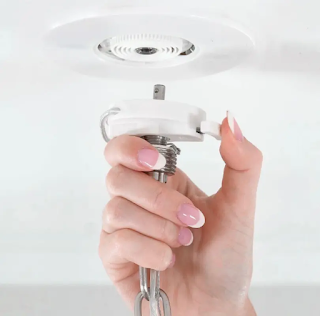Choosing the Best Battery for Your RV Solar System: The 12V 30Ah LiFePO4 Battery
The allure of RV travel lies not just in the destinations but also in the freedom and self-sufficiency it offers. Modern RVs increasingly rely on solar power to meet their energy needs, allowing travelers to venture off-grid without worrying about running out of power. However, at the heart of every RV solar system lies a critical component: the battery. In this article, we’ll delve into the importance of selecting the right battery for your RV solar setup, with a particular focus on the 12V 30Ah LiFePO4 battery.
Understanding RV Solar Systems
RV solar systems comprise several key components working together to harness and store solar energy. Solar panels capture sunlight and convert it into electricity, which is then regulated and stored in a battery by a charge controller. The stored energy can be used directly to power appliances and devices in the RV, or it can be converted into AC power through an inverter for more versatile use.
Introducing the 12V 30Ah LiFePO4 Battery
Among the various battery options available for RV solar systems, the 12V 30Ah Lithium Iron Phosphate (LiFePO4) battery stands out for its superior performance and reliability. LiFePO4 chemistry offers distinct advantages over traditional lead-acid batteries, including higher energy density, longer lifespan, and faster charging capabilities. The 12V 30Ah variant strikes a balance between capacity and size, making it suitable for a wide range of RV setups. Discover the power and reliability of GoldenMate 30Ah Battery for your RV solar system.
Benefits of Using LiFePO4 Batteries in RV Solar Systems
LiFePO4 batteries offer several compelling benefits for RV enthusiasts seeking a dependable power source:
- Lightweight and compact design: LiFePO4 batteries are significantly lighter and more compact than lead-acid batteries, making them ideal for RVs where space and weight are at a premium.
- High energy density and efficiency: LiFePO4 batteries boast a higher energy density, meaning they can store more energy in a smaller footprint. They also have higher charge/discharge efficiency, resulting in more usable capacity.
- Longer lifespan and cycle life: LiFePO4 batteries can endure a greater number of charge-discharge cycles compared to lead-acid batteries, translating to a longer lifespan and better value over time.
- Maintenance-free operation: Unlike lead-acid batteries that require regular maintenance such as topping up electrolyte levels, LiFePO4 batteries are virtually maintenance-free, saving time and effort for RV owners.
- Safety considerations: LiFePO4 chemistry is inherently safer than other lithium-ion chemistries, with lower risk of thermal runaway or fire, making them a reliable choice for RV applications.
Factors to Consider When Choosing a Battery for Your RV Solar System
Selecting the right battery for your RV solar system involves considering various factors:
- Power requirements and energy consumption: Determine your energy needs based on the appliances and devices you intend to power, and choose a battery with sufficient capacity to meet those requirements.
- Available space and weight limitations: Consider the physical dimensions and weight of the battery to ensure it fits within the confines of your RV and complies with weight restrictions.
- Environmental conditions: Evaluate the battery’s performance under different environmental conditions, especially temperature variations, to ensure reliable operation in all seasons.
- Budget considerations: While LiFePO4 batteries may have a higher upfront cost compared to lead-acid batteries, their long-term benefits in terms of lifespan and performance often justify the investment.
Read also: EV Chargers 101
Comparison with Other Battery Options
It’s essential to weigh the pros and cons of different battery types before making a decision:
- Lead-acid batteries: Flooded lead-acid (FLA), absorbed glass mat (AGM), and gel batteries are common choices for RVs. While they are generally more affordable upfront, they have shorter lifespans and require more maintenance compared to LiFePO4 batteries.
- Lithium-ion batteries: Besides LiFePO4, other lithium-ion chemistries like lithium cobalt oxide (LiCoO2) and lithium manganese oxide (LiMn2O4) are available. However, they may pose higher safety risks and have different performance characteristics compared to LiFePO4 batteries.
Installation and Maintenance Tips for LiFePO4 Batteries
Proper installation and maintenance are crucial for maximizing the performance and lifespan of LiFePO4 batteries:
- Mount the battery securely in a well-ventilated area, away from heat sources and direct sunlight.
- Follow the manufacturer’s guidelines for charging and discharging to avoid overcharging or over-discharging, which can damage the battery.
- Monitor the battery’s state of charge and voltage regularly, and address any issues promptly to prevent damage or malfunction.
- Take appropriate safety precautions during installation and maintenance, including wearing protective gear and following electrical safety protocols.
Real-World Applications and User Experiences
Many RV owners have embraced LiFePO4 batteries for their solar setups and reported positive experiences:
- Case studies demonstrate how LiFePO4 batteries have enhanced the reliability and convenience of RV solar systems, enabling extended off-grid adventures.
- Testimonials and feedback from users highlight the performance, durability, and peace of mind offered by LiFePO4 batteries, underscoring their value as a long-term investment.
Conclusion
Choosing the best battery for your RV solar system is a critical decision that can significantly impact your overall camping experience. The 12V 30Ah LiFePO4 battery emerges as a top contender, offering unmatched performance, reliability, and safety for discerning RV enthusiasts. By considering factors such as power requirements, space constraints, and budget considerations, you can ensure that your RV is equipped with the right battery to power your adventures for years to come.





